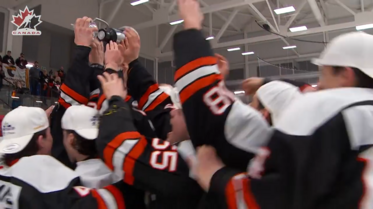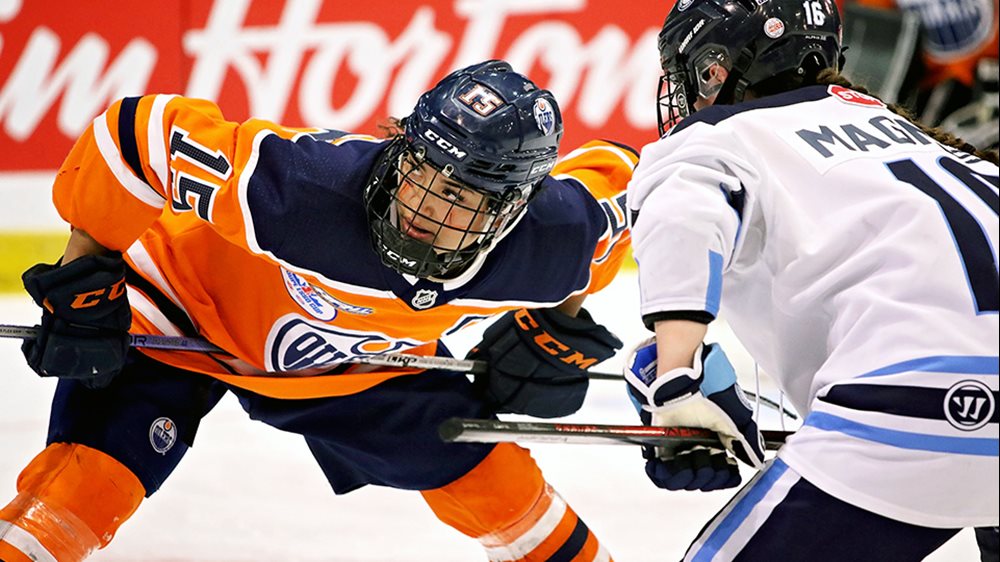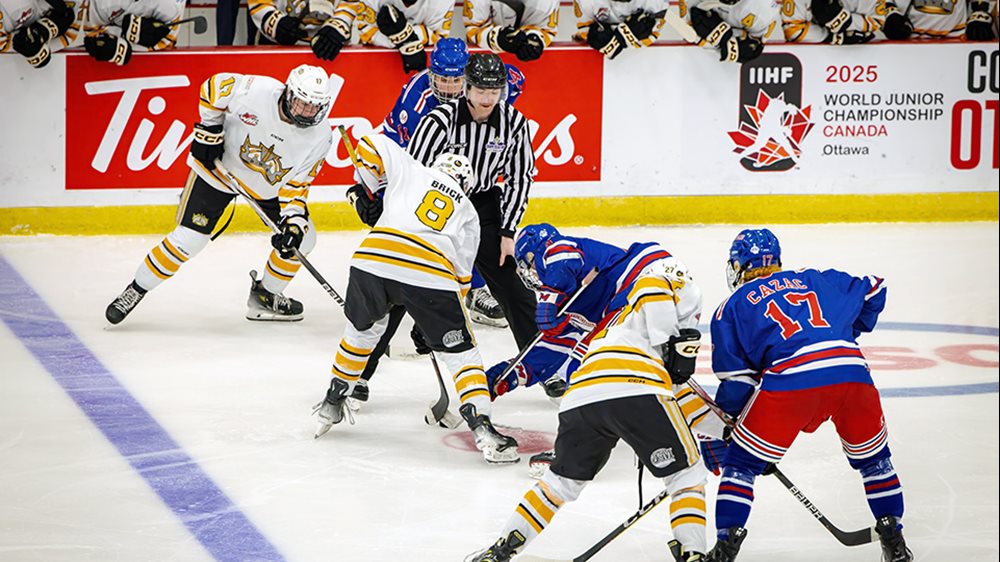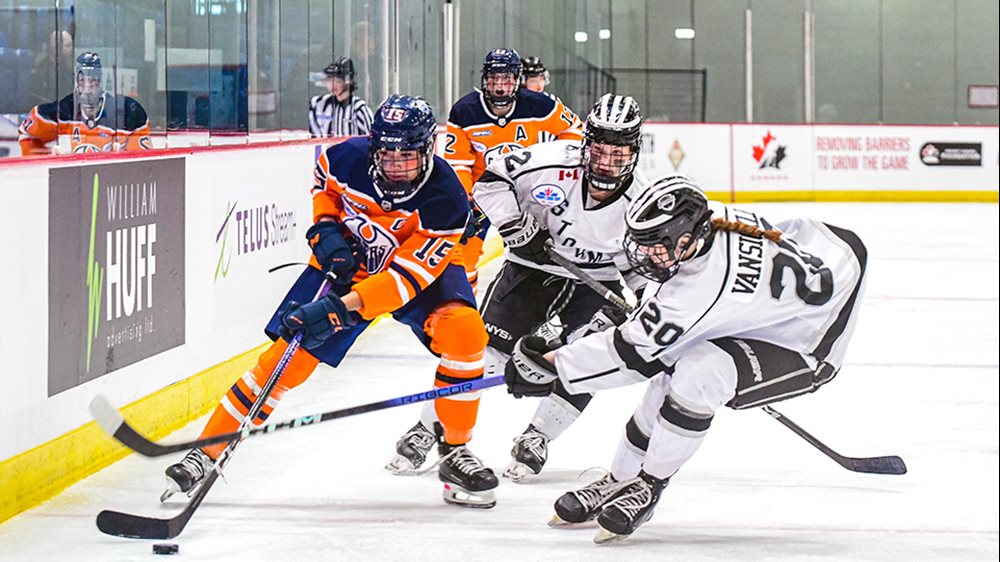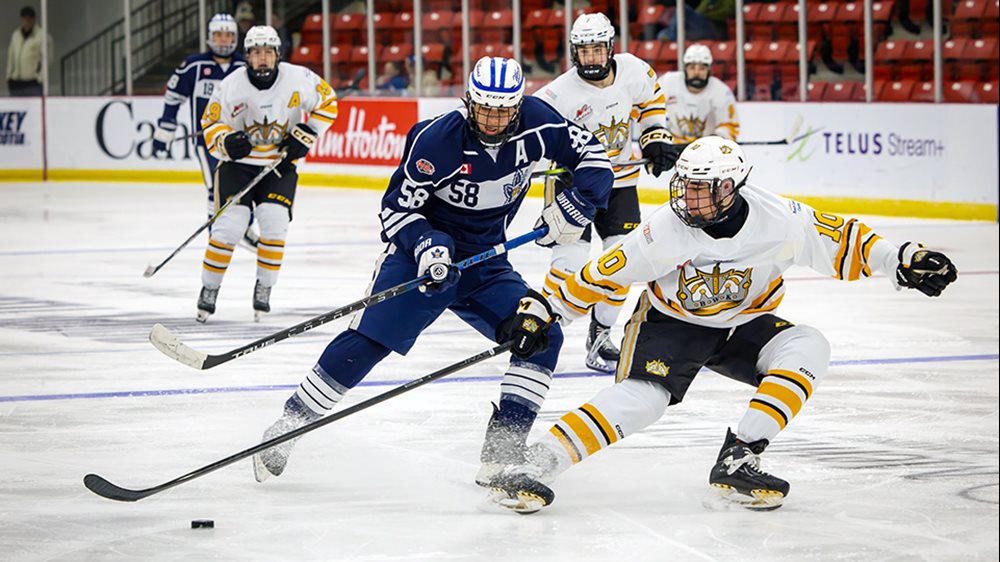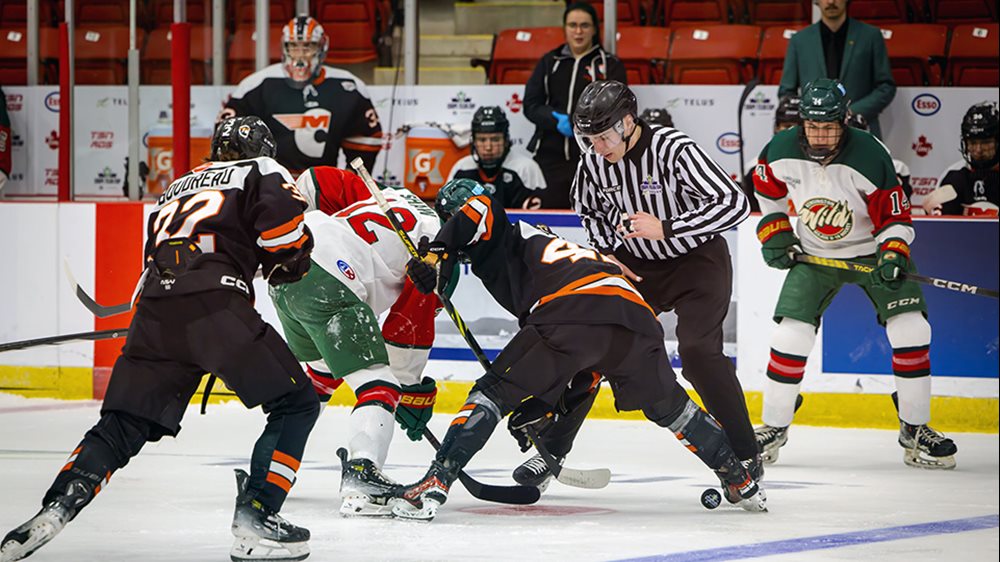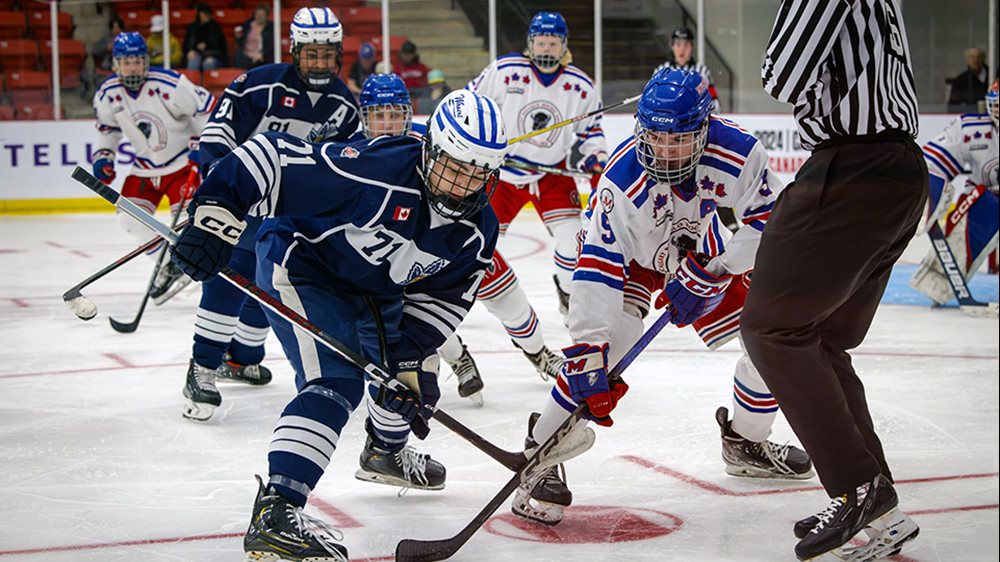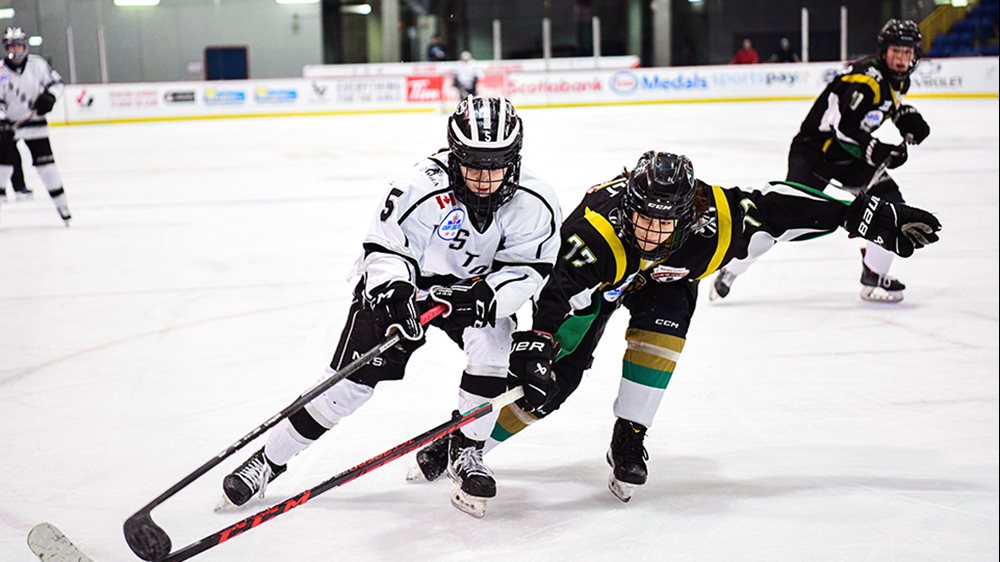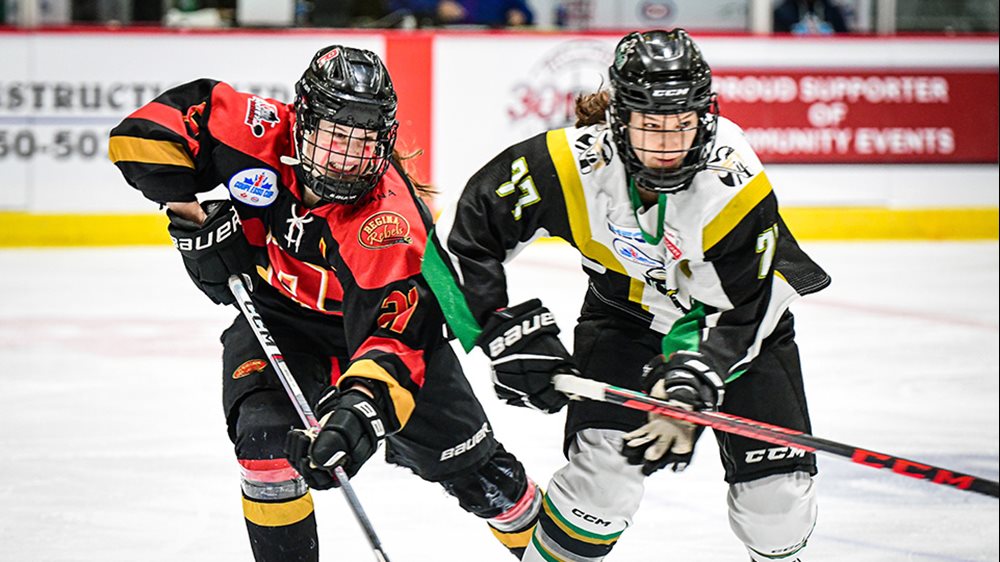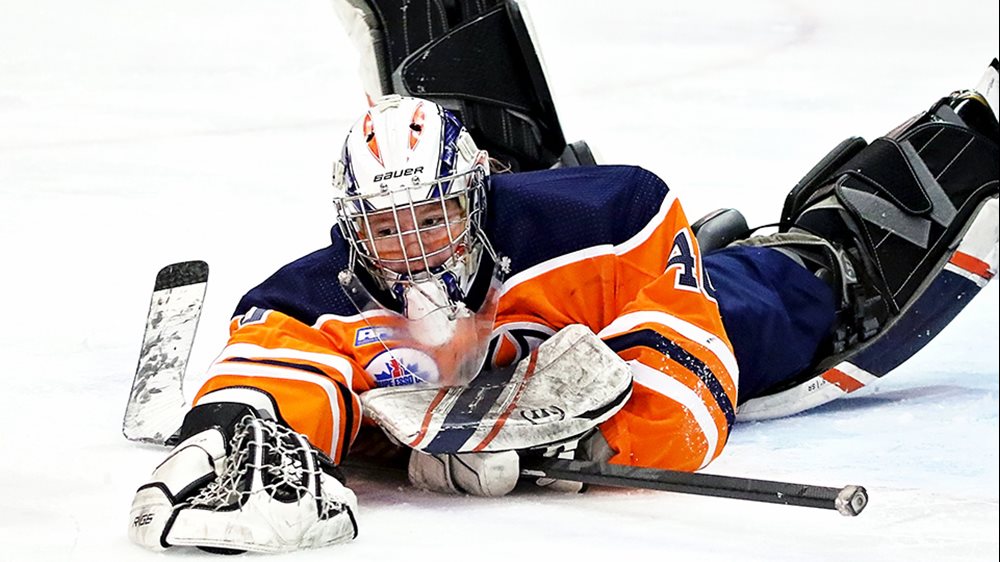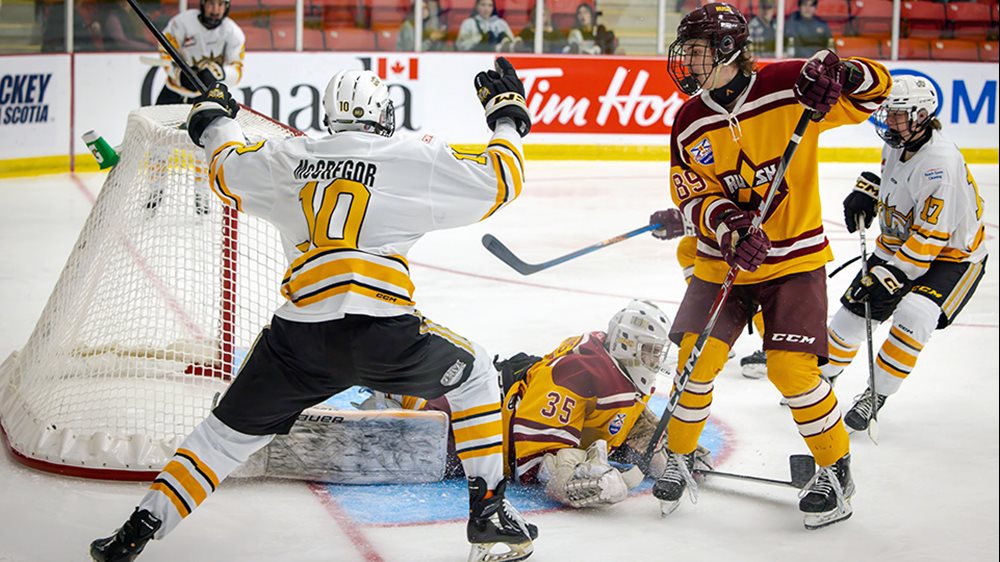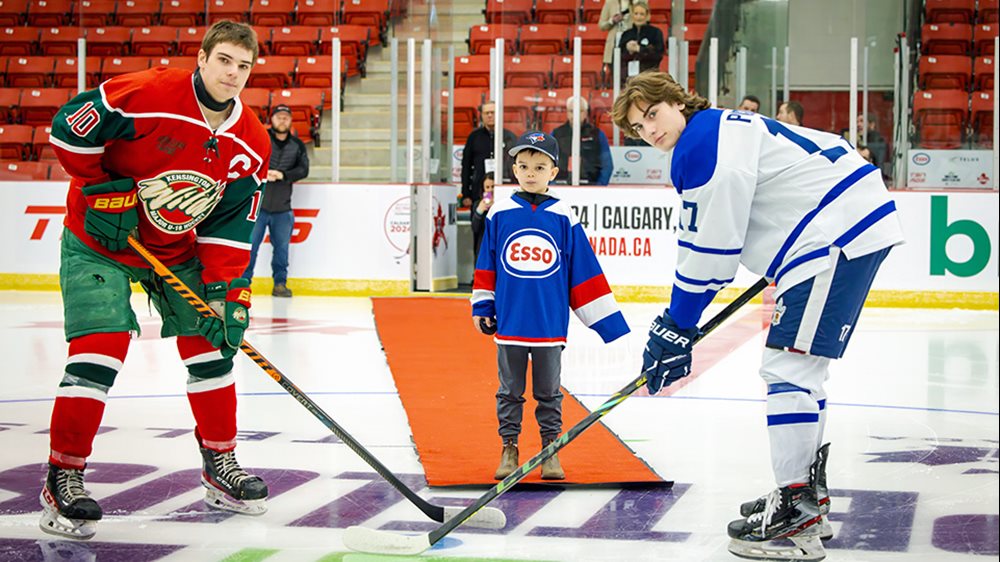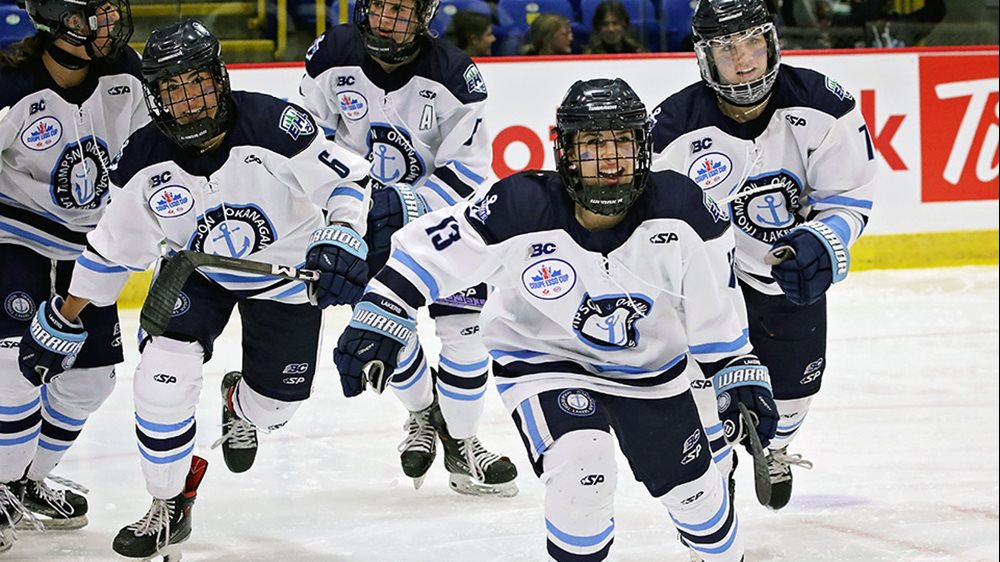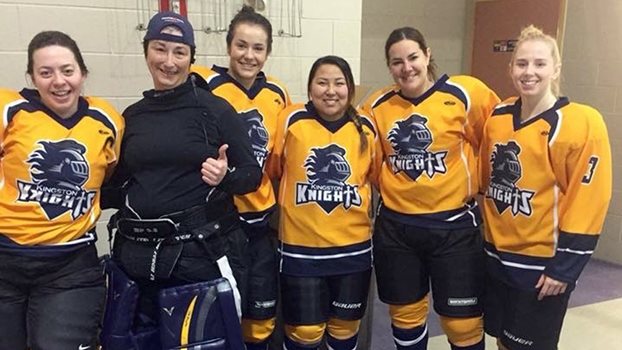
Forces at play
CPO1 Line Laurendeau has two loves in life – hockey and the Canadian Forces – and both have played leading roles in shaping the person she is
Line Laurendeau doesn’t hesitate when asked whether she prefers water in its natural state or the frozen version.
“Water,” Laurendeau says with a chuckle. “There’s a calmness to the seas that you can’t compare to anything. Going abroad, that’s what the navy gave me. The opportunity to meet new people and make a difference in people’s lives. If I make a difference, I feel like I did my duty.”
Laurendeau has spent her life on water, both the open seas she describes and on the ice, mainly as a goaltender. Sailing is her true passion but who says a person can’t have two things in life they can’t live without?
The 26-year veteran of the Canadian Forces is also a hockey nut, having played military hockey for a quarter of a century, which includes competing in 17 military national championships, twice being named Top Goaltender and once, in 2004, winning a national title.
The 48-year-old got her start in the game at the age of eight. She was a goaltender then and continues to stop pucks today and says her two passions of hockey and serving in the military combine for a match made in heaven.
“It’s a big family. In the military, you don’t do anything alone,” says Laurendeau when asked how hockey and the military are similar. “If someone is having a difficult time, you’re there and you bring them back up and help them in many ways. Someone may be struggling and you become a brother or sister or a parent; you’re there for each other.
“When you look at a hockey team, it’s exactly the same thing. You’re down 2-1 and you need the leader on that team to say ‘Hey, let’s get that goal back and we can be back in the game.’ Everyone has to believe in each other. That’s the same thing the military does, believe in each other. If we proceed with humanitarian tasks, we have to be in sync in order to make a difference for those people in need.”
Helping people is why Laurendeau does what she does. She has been on a number of trips abroad to help those in need, spending time in the Persian Gulf, South China Sea and Vietnam, just to name a few.
Her fondest memories are of helping children, including last year’s trip to Vietnam when Laurendeau and her team were able to secure funds to help kids suffering from diseases related to Agent Orange, a powerful herbicide used by the U.S. military during the Vietnam War to eliminate forest cover and crops.
Laurendeau says the smallest acts of kindness, like introducing bubbles and paint to kids who have never experienced such things, can change the course of a child’s life.
Laurendeau, who is a Chief Petty Officer First Class (the most senior non-commissioned member rank of the Royal Canadian Navy), was invited this past June to the annual Hockey Canada Foundation gala to represent the Canadian Forces. It’s a memory she says she will cherish forever as Laurendeau was able to rub shoulders with some of the greatest female hockey players ever – from Cassie Campbell-Pascall to Charline Labonté and Danielle Goyette.
And Laurendeau, who comes across as somewhat shy of the spotlight and wanting to give credit to everyone but herself for moving the game forward, says her time in Edmonton was mostly spent thanking women’s hockey pioneers.
“I can tell you, I’m 48 today, but I felt like I was 10,” she says. “I grew up watching them. Talking to them and seeing where they’re at today, I had the chance to shake their hands and thank them for what they did. I remember meeting Cassie Campbell. I told her ‘You have laid the foundation for women’s hockey players, not only professionally but also in the military.’ Having the chance to say thank you to them, that made my day. It was so awesome.”
Like many who have been in the game for years, Laurendeau’s best memories would take up pages. There is one, though, that stands out from the rest when it comes to her playing days.
Although she has been to 17 military nationals, it was the 2004 tournament that seems to come up the most. Laurendeau was the goaltender for CFB Esquimalt and backstopped the team to the national title, one that was as unexpected as that famous U.S. win in 1980, dubbed the Miracle on Ice.
“I can never forget that for the rest of my life. That year our team was finally able to win the gold,” she says. “We were not the top team. I know a lot of people were saying we wouldn’t win. I remember saying ‘If you see it, you will make it. I believe in it and I believe in you.’ It was like the movie Miracle. Everything was falling into place. When we lifted up that cup, the amount of emotion we had … we talk about it today and it was like it was yesterday.”
Laurendeau continues to be active in the military and in hockey. For close to 10 years, she has officiated the sport to try and give back to a passion that has given her so much. In 2016, she had the honour of officiating in the CARHA Hockey World Cup, which is the Olympics of recreational hockey, and she will also wear the stripes at the 2020 tournament in Richmond, B.C.
Laurendeau mentions often that she is just one player in the large family that is military hockey and takes great pain in ensuring her supervisors, those who came before her, are credited for the path they laid and that she and others continue to forge. Her life has been spent on the water – in its natural AND frozen forms – and she wouldn’t have it any other way.
“Hockey, for me, mirrors what a sunset and sunrise is on the open sea,” she says. “We turn the page and we keep fighting, tomorrow is a new day and we keep getting better.”
For more information: |
- <
- >

